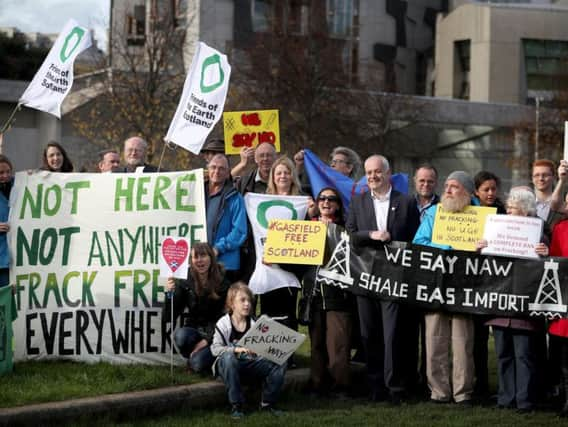Fracking ban ‘accidentally’ revealed by bungling Scottish Government officials


Energy minister Paul Wheelhouse is expected to formally update MSPs on the issue when he makes a Holyrood statement on Thursday.
Two years ago Mr Wheelhouse announced an "effective ban" on fracking in Scotland, but judges found this had no legal force after a court challenge was brought by petrochemical giant INEOS.
Advertisement
Hide AdAdvertisement
Hide AdThe Scottish Government has been conducting several consultations on fracking in order to meet the legal requirement and it emerged this week that a decision would be unveiled in Thursday's statement. But ministers appear to have confirmed its opposition to fracking in documents published on the Scottish Government website today, which form an addendum to a consultation from earlier this year.
Under the heading "We Did", it states: "On 03 October 2019, the Scottish Government confirmed its final policy position of no support for unconventional oil and gas (UOG)."
Liberal Democrat energy spokesmen Liam McArthur said: “The Scottish Government appeared to have confirmed their position on fracking via documents published accidentally online, rather than by announcing it to Parliament more than three years ago when Liberal Democrats pressed them to introduce a ban.
“Across Central Scotland communities sat on or near sites potentially earmarked for fracking have been living in fear of what the Scottish Government might decide.
"By dragging their feet, Ministers have imposed years of uncertainty on those people and their communities."
The technique, formally known as hydraulic fracturing, involves rocks up to a mile underground being “fractured” with high pressure water injection.
It has prompted previous concerns among environmentalists it could case earthquakes, as well as fears over carbon emissions.